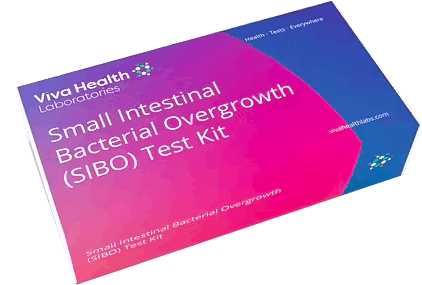Natural Ways to Treat SIBO: What Works and What Doesn’t
If you’ve been dealing with SIBO (Small Intestinal Bacterial Overgrowth), you’re likely tired of the endless cycle of bloating, abdominal discomfort, and unpredictable gut issues. Many people are turning to natural remedies or alternative treatments in hopes of finding relief from SIBO without relying solely on antibiotics. In this guide, we’ll dive into natural treatments for SIBO, explore what works, what doesn’t, and share real patient experiences along the way.

What Is SIBO and Why Consider Natural Remedies?
SIBO occurs when an overgrowth of bacteria in the small intestine disrupts your normal digestion. This imbalance can lead to symptoms like gas, bloating, constipation, diarrhoea, and even nutrient deficiencies.
“I was frustrated by the recurring symptoms and wanted a solution that didn’t just mask the problem. Exploring natural treatments gave me hope for lasting relief,” says Jenna, a RefluxUK SIBO patient.
Natural remedies that focus on a protocol and takes holistic approach can be helpful for some. They’re designed to tackle the root causes of SIBO by adjusting diet, using targeted herbal therapies, and improving overall gut health.
Natural Treatments That Show Promise
1. Herbal Antimicrobials
Herbal antimicrobials have been a hot topic among those managing SIBO naturally. Many herbs offer potent antibacterial properties that can help reduce the overgrowth in your small intestine.
- Oregano Oil: Rich in compounds like carvacrol, oregano oil is known for its strong antibacterial effects. Many patients find that incorporating a diluted form into their routine can ease symptoms.
- Berberine: Derived from herbs such as goldenseal and barberry, berberine not only fights harmful bacteria but also has anti-inflammatory benefits. It can be particularly useful for reducing gut inflammation.
- Garlic Extract: The active ingredient allicin in garlic is celebrated for its natural antimicrobial properties. It’s a favourite for those who prefer food-based therapies.
“After I started using a herbal regimen that included oregano oil and berberine, my bloating and discomfort decreased significantly. It felt like a natural reset for my gut,” shares Mark – RefluxUK patient, who’s been using these remedies for over a year.
Studies, such as those referenced on Sage Journals, have shown promising results with these herbal antimicrobials, supporting their use as part of a comprehensive treatment plan.
2. Dietary Changes
Adjusting your diet is a cornerstone of natural SIBO management. What you eat can either feed the harmful bacteria or starve them, so making smart choices is essential.
- Low FODMAP Diet: This diet reduces fermentable carbohydrates that bacteria thrive on. Patients often notice less gas, bloating, and discomfort after making the switch.
- Elemental Diet: Sometimes a liquid diet composed of pre-digested nutrients is recommended to “starve” the bacteria. Although challenging, many patients report significant symptom relief during the intervention period.
- Specific Carbohydrate Diet (SCD): By eliminating complex carbs, the SCD may help restore gut balance over time. It’s a more gradual approach that some find easier to stick with.
“Switching to a low FODMAP diet was life-changing. I could finally enjoy a meal without the fear of a painful aftermath,” says Lisa, RefluxUK Patient, who has successfully managed her SIBO symptoms with dietary changes.
3. Probiotics and Digestive Enzymes
Probiotics can be a double-edged sword in SIBO management. The key is choosing the right strains that help balance your gut without adding fuel to the fire. In addition, digestive enzymes can aid digestion, ensuring that fewer undigested nutrients are left behind to feed excess bacteria.
- Targeted Probiotics: Some research, including insights from the Journal Nutrients, suggests that carefully selected probiotic strains can support gut health. However, be cautious - using the wrong strains might worsen symptoms.
- Digestive Enzymes: These supplements can help break down food more efficiently, reducing the risk of fermentation by harmful bacteria.
Natural Treatments with Mixed Results
1. Detox and Cleansing Regimens
Detox diets and cleanses are often touted as a way to “reset” your gut. However, while they may offer a short-term feeling of lightness, there’s limited solid evidence that they address the underlying issues of SIBO. Plus, if done improperly, detoxes can lead to nutritional imbalances.
2. Generic Supplements
The market is flooded with supplements claiming to boost gut health, but not all of them are backed by science when it comes to targeting SIBO. It’s important to differentiate between targeted herbal antimicrobials and broad-spectrum supplements that may not offer specific benefits for bacterial overgrowth.
3. Probiotics Without the Right Strains
Not all probiotics are beneficial for SIBO. Some over-the-counter blends might even contribute to excess gas and worsen symptoms. Research shows that only certain strains can be helpful, so using a generic product might not do the trick.
Combining Natural Approaches With Conventional Treatments
Many patients find that the best results come from blending natural methods with conventional treatments. Here are some tips to get the best of both worlds:
- Personalised Treatment Plans: Work closely with your RefluxUK healthcare specialist to design a plan that might include herbal antimicrobials, dietary adjustments, and—if needed—a short course of antibiotics.
- Regular Monitoring: SIBO is often a recurring condition. Keeping track of your symptoms and regularly checking in with your consultant can help you fine-tune your approach.
- Lifestyle Matters: Beyond specific treatments, a holistic approach to SIBO that includes stress management, regular exercise, and proper sleep can significantly impact your overall gut health.
“My consultant and I worked together to create a plan that mixed natural remedies with some conventional medicine. It wasn’t a miracle cure, but it made my symptoms much more manageable over time,” recounts Jenna – Reflux UK Patient.

Speak to an expert
Want more guidance on natural treatments and how they can be combined with more 'traditional' reflux treatment options? Our experts are on hand
speak to an expertFrequently Asked Questions
Q: Can I completely replace antibiotics with natural treatments for SIBO?
A: While many patients experience relief with natural remedies, antibiotics are still essential in the treatment of SIBO. A balanced approach often works best, and your healthcare provider can help you decide the right course of action. However, antibiotics are still the mainstay treatment as there is still very limited research on the effectiveness on using a purely natural remedies approach.
Q: Are there any side effects from using herbal antimicrobials?
A: Most herbal antimicrobials are well tolerated when used appropriately, but some individuals might experience mild gastrointestinal upset. Always start with a lower dose and consult with your RefluxUK Clinician if you have concerns.
Q: What’s the difference between SIBO and IMO?
A: SIBO is a bacterial overgrowth of the small intestine, these pathogenic organisms produce hydrogen or hydrogen sulphide which can cause gas, pain, diarrhoea. IMO or Intestinal Methanogen Overgrowth involves methane-producing archaea, causing constipation and bloating. Each type requires specific testing and targeted treatment.
Final Thoughts
Herbal antimicrobials, smart dietary changes, and the right probiotics can offer relief, but when considering treatment options for SIBO, it is essential to seek professional medical advice from a RefluxUK healthcare specialist before starting any new approach. While these natural treatments may support gut health, these treatments should be guided by a qualified professional to ensure safety and effectiveness. All recommendations at RefluxUK are backed by peer-reviewed scientific studies, ensuring you receive evidence-based care, tailored to your needs. By following expert guidance, you can make informed decisions and take meaningful steps toward lasting gut health.





